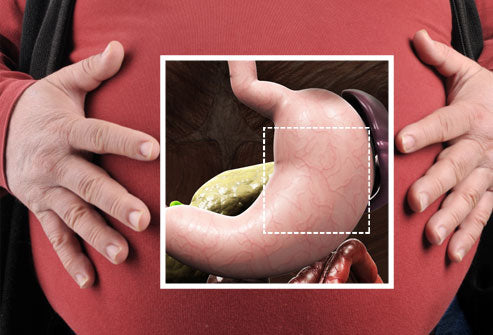A full head of hair, in our modern day, is a luxury that not all people are lucky enough to have. Not openly talked about, hair loss causes significant psychological stress for millions of men and women around the world and leaves many to feel isolated in their struggles.
Hair loss can be particularly stressful for those who have undergone bariatric weight loss surgery, as the promise of an ideal body is quickly clouded by another image struggle, one that patients aren’t expecting.
Some degree of hair loss is fairly common after bariatric surgery, usually occurring 3 months or more after surgery.

While the precise causes of post-bariatric hair loss are not clear, changes in nutrition or surgical repercussions on the hair growth cycle are thought to be involved.
Luckily, In most cases, hair will regrow without intervention after the patient’s weight has stabilized.
Why You Lose Hair After Weight Loss Surgery
Frequently, when the body undergoes a significant change in health or routine, the hair follicles can react by going into a dormant phase.
With bariatric surgery, in particular, a type of hair loss called telogen effluvium occurs, and during it, the hair goes through a natural resting phase that is prolonged because of the changes in hormones, stress or diet.
In a regular, healthy hair cycle, there are three phases:
Anagen or Growth Phase
The anagen phase is the stage in the hair cycle where your hair grows. About 85 percent of the hairs on the average person’s head is in the anagen phase at any given time
Catagen Phase, or the Transitional Phase
The catagen phase is a transitional phase where the follicles are in a state of renewal. This phase lasts about two weeks and the hair follicles during this time shrink, the papilla detaches and rests--leading to the telogen phase.
Telogen Phase or Resting Phase
The telogen phase is also called the resting phase. During this phases hair, follicles can remain dormant for one to four months. However, factors such as stress, hormone imbalances and changes in the body’s normal routine can prolong this period for many people.
6 to 8 percent of the hairs on the average person’s head are in this phase of growth at any given time. Eventually, as this cycle passes, hair and follicles will transition to the growth phase again.

Why Does Hair Loss or Telogen Effluvium Happen after Bariatric Surgery?
There are many contributing factors to telogen effluvium after weight loss surgery. Some of the more common ones include:
Hormone Changes
Usually, after surgery and dramatic weight loss, your body experiences some form of hormone fluctuations. This can prolong the resting state of hair follicles and result in hair loss.
Vitamin or Mineral Deficiency
It is very common for individuals to suffer from some form of vitamin or mineral deficiency after weight loss surgery, especially because their dietary intake is dramatically less. For many people, vitamin and mineral deficiencies can cause dramatic hair loss until the nutrients are replenished.

Reduced Caloric Intake
After surgery, patients dramatically reduce their caloric intake. Sometimes this can shock the body and hair follicles, resulting in hair loss.
Surgical Trauma
Many patients have reactions to the surgery itself. Bearing in mind that the surgery is invasive and requires anaesthesia and recuperation time, these factors alone can be distressing enough on the body to cause hair loss.

Other Contributing Factors to Hair Loss
Sometimes hair loss after surgery can occur for other reasons too. For instance stress, itself can cause hair loss, as well as hereditary factors such as genetic baldness, or even age.
Whatever the cause, those who suffer from hair loss after surgery can take solace in the fact that nearly 50% of patients experience some form of hair loss after surgery.
How to Prevent Hair Loss after Weight Loss Surgery
The most important point to keep in mind if you lose hair after surgery is that hair loss is very common and treatable post surgery. In most cases, time will take care of the issue within 6 months or so.
Nevertheless, it doesn’t hurt to ensure you keep up a healthy diet after your bariatric surgery, not just for your hair, but also for your overall health and recovery.
If you want to aid your recovery and hair loss, you should make efforts to:
Eat a High Protein Diet
You can obtain this through foods like chicken, beef, tofu or eggs, or with shakes and supplements.
Take a Bariatric Multivitamin
There are many options from brands that have created supplements specifically for post-surgery recovery, including: Unjury ®, Bariatric Advantage ®, and Bariatric Fusion ®.
Or The Healthier Alternative...
Similarly, there are many hair loss supplements that can increase hair growth, including Pro Hair 1 and Pro Hair 2, both of which are Health Canada approved.
Pro Hair 1 uses traditional Chinese herbs and roots that speed up the body’s recovery process, healing trauma from surgery and reducing stress and anxiety post surgery.

Many patients also find that, in addition to renewed hair growth, they heal faster and feel less overall anxiety.
Pro Hair 2 uses clinically tested roots and herbs that have been proven to boost the body’s immune system and increase its ability to absorb nutrients, especially to the scalp and skull.

This results in renewed hair growth, in addition to an overall improved immunity. Many individuals find that they feel healthier and stronger after taking the formula, while also experiencing renewed hair growth.
Rest and Relax
With any surgery, recovery requires plenty of rest and relaxation to aid the healing process. Make sure you get plenty of sleep and keep your activities to a moderate level.

Following a Post Operative Diet
There is a very special diet prescribed after surgery. This must be followed precisely in order to help the recovery process. Eating items that aren’t on the diet may result in pain, stomach issues and aggravation of your post-operative conditions.
Consult with Your Doctor to Ensure Recovery Is Proceeding Well
Check in regularly with your doctor to ensure you are recovering well. He or she can prescribe other foods, supplements or medication to aid your healing process.


1 comment
priligy